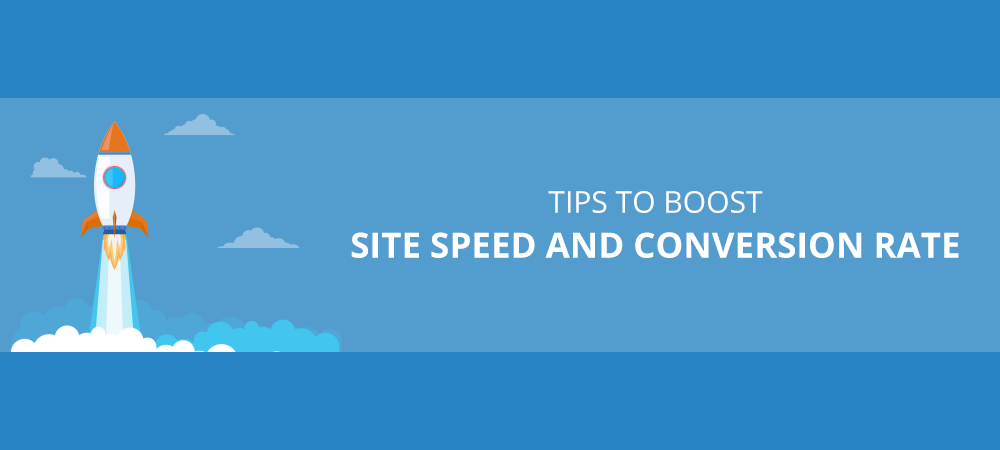Optimizing your eCommerce website for better speed and performance is significant in a market with cutthroat competition. Your competitor may take away all the conversions if his or her website loads a bit faster than yours. According to statistics shared by Trinity.One, about 37% of visitors leave a website if a website takes 5 seconds or more to load. The online buyers know that they have choices in abundance. If your website does not load faster, they may bounce back to open another store from the SERPs.
Magento is a reliable platform for setting up your eCommerce website. Though, it has all the pre-requisite of building an online store. But, you may still need to optimize it to load better and faster in different browsers and devices. This post discusses some of the proven techniques that can help you speed up your Magento store, whereas you always have the option to hire experts for it.
- Remove unused images
Images that are high in quality are bulky. These cause the web pages to load slower. One of the effective techniques is reducing image sizes. But, what about the unused images that are still present in your website database? These unwanted images are used neither in products nor CMS pages.
You may not able to find them as you may have either deleted or removed from different pages. But, their presence in the database is costing you a lot in website performance. Search them right now and wipe out straightaway. By default, you may not find an option to quickly all such images. Magento Image Clean extension is a purpose-built tool that allows you to extract a complete list of orphan images, which does not belong to even a single page of your website.
The extension allows you to erase the complete list, delete unused images of a specific product or category, or try deleting such files by selected formats. By enabling a cron job, you can automate the image clean operation and keep the website and database storage free.
- Seek Professional Assistance
Knowing every bit of speed optimization technique is different. There are a plethora of factors that may be affecting the speed and performance of your Magento website.
Though, we share the tips to help you gain knowledge and try most of the things on your own. But, somehow, you may still need the assistance of an expert. You can decide to hire Magento 2 speed optimization services either before trying some of the techniques yourself or after that.
In either way, you can end up with expert advice. Depending on your knowledge and technical skills, you can check if you can carry some of the tweaks or have to ask on a dedicated speed optimization expert.
- Update to the latest version
Every update of Magento 2 comes with speed and performance enhancement features. If you want to remain competitive in the digital arena, keep a close eye on the latest version of Magento and update it as soon as you can.
Log onto the admin panel of your eCommerce website and check if any latest version is available to update. Before an update, ask your web development team or agency as if the tools and extensions you have installed will still be working fine after the update.
Once you get a ‘Go Ahead’ do not spare a minute to update as it comes with a lot of speed and performance enhancements.
- Enable flat catalogs
Magento 2 is often considered slower in reading the database that ultimately results in poor website performance. Do not let the reading pattern of the platform affect your store loading speed. You can enable flat products and categories, as this eases readability.
To have this, you can log in to your eCommerce website admin panel, click Stores and navigate to the configuration settings. Upon tapping the Catalog tab, drag down to the catalog and reach Storefront. On the screen, below the basic options, you may find these two options:
- Use Flat Catalog Category
- Use Flat Catalog Product
Enable both of them, and see if it impacts the speed and performance of your online store or not. Keep an on the page loading speed after every change you make.
- Evaluate 3rd party extensions
The 3rd party extensions that you may have installed on your eCommerce website may not officially be approved by Magento. These tools are not gone through technical review of the Magento team. Therefore, these may sometimes slow down specific pages or affect the performance of the entire website.
Inspect every extension with the perspective of its contribution to your website’s sluggish performance. Disable the extensions one by one and evaluating its impact on the site speed. Uninstall the extension if the module is negatively affecting your website.
- Choose a featherweight theme
Magento is a standalone eCommerce platform. It does not require any other software or CMS to develop a website as we often see WooCommerce that depends on WordPress. Therefore, a Magento theme is often equipped with all the basic to advanced options.
If you are starting low, then do not go for a bulky theme. Jot down your business requirements and find a lightweight theme that suffices your needs. As you scale up your business, you can decide to move to a versatile theme without comprising the speed and performance of your eCommerce website.
- Enable production mode
Magento comes with 3 modes that are used for different occasions. The default and developer modes are enabled with the aim to make changes to the website or carry debugging tasks. These are slower and may not give optimum speed and performance to the website. The third mode is the production mode, which is the fastest of all. Enable it for your live site and feel the difference in page loading speed.
- Reliable and speedy hosting
If you are using the Magento Open source, the server hosting may also be playing an eminent role in the defining speed of your eCommerce website. Shared hosting is not going to work for an online store that aims to attract audiences across the globe. Avail dedicated hosting or managed hosting for your Magento website to make the most out of it.
Final words
The points I have shared above in this post are quite helping in laying a speed-optimized foundation of your Magento store. Work on each technique to effectively improve the page loading speed and performance of your web shop. A small mistake can cost you a lot.
For making any change to your website, it is always recommended to take a backup of the entire data and discuss them beforehand with your web development partners. To save time and hassle in understanding the entire process, you can opt to find a Magento speed optimization specialist. Let him do his job professionally and enjoy your peace of mind.






